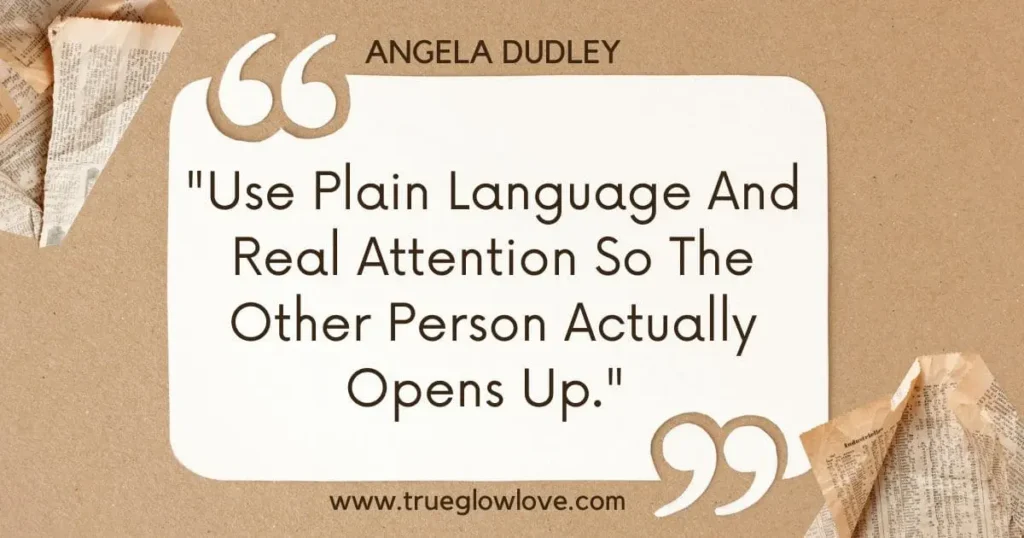The Most Important Things Husband Never Say Out Loud
If you’ve ever typed Things Husband Never Say into Google after a long day and a short conversation, you’re in the right place. This isn’t just another list of one-liners. We’re going to laugh a little, breathe a little, and actually fix some stuff. Because the real story behind Things Husband Never Say isn’t about sarcasm or “men are from Mars”—it’s about the small, everyday moments where you and your partner just miss each other.
Here’s the plan: we’ll start with the funny (because humor helps), move into the hurtful things husbands sometimes say (or don’t say), and then get practical about why husbands don’t communicate the way you might want—and what to do about it. You’ll get simple scripts, expert-backed insights, and real-life tips you can use tonight. The goal is simple: turn Things Husband Never Say into conversations he can actually have.
Quick note before we jump in: every relationship is different. Not every guy fits a stereotype. Still, patterns are real—and understanding them can make your home feel a little lighter and your talks a lot clearer. If you came for clarity on Things Husband Never Say, you’ll leave with tools you can use, plus a few chuckles along the way.
Table of Contents
Part 1: 10 Funny “Things Husband Never Say” (and Why He Doesn’t Say Them)
The Lighter Side of Things Husband Never Say
This is the warm-up lap: relatable, a little ridiculous, and surprisingly helpful.
“You’re right, I’ll stop what I’m doing and fix that right now.”
What he means: “I’m in the middle of something and switching gears is hard.”
Tip: Ask for a time commitment instead: “Can you fix it before dinner or after?”
“I think we have too many throw pillows.”
Translation: He doesn’t understand pillow politics.
Tip: Ask which ones he actually uses and pick one “sacrificial pillow” he can manhandle guilt-free.
“Let’s spend the afternoon talking about our feelings.”
What he means: Not his default weekend plan.
Tip: Try a 10-minute check-in after dinner. Shorter talks = more often = less resistance.
Navigating Social Situations
“Can you tell me that long story again? I wasn’t listening properly the first time.”
What he means: He’s probably embarrassed that he zoned out.
Tip: Invite him back in: “Want the 2-minute version?”
“I’d love to go to your cousin’s baby shower.”
What he means: He loves you; he just hates small talk.
Tip: Offer a trade: “Baby shower with me Saturday, your pick Sunday.”
Daily Domestic Bliss
“I think the thermostat is set perfectly.”
What he means: Thermostat wars are eternal.
Tip: Agree on a baseline and allow a personal comfort tool (hoodie/blanket/fan).
“You’ve had a long day—let me cook dinner and do all the dishes.”
What he means: If he doesn’t say it, teach it.
Tip: Post a simple “If I cook, you clean” rule on the fridge.
“I actually enjoy going to Target.”
What he means: He enjoys completing missions.
Tip: Give a clear list and a victory text when he’s done.
“I don’t need directions, but I’ll ask for them anyway.”
What he means: He sees asking for directions as a defeat.
Tip: Try: “Want me to drop the address into maps?” Zero snark, all support.
“Another new pair of shoes? You deserve it.”
What he means: He might be worried about the budget but doesn’t know how to bring it up.
Tip: Budget talks beat passive comments. Pick a monthly “fun money” amount for each of you—no questions asked.
Part 2: 15 Things a Husband Should Never Say to His Wife
This is where Things Husband Never Say turns serious. The words below can sting, even when he “didn’t mean it like that.” Here’s what to watch for—and what to say instead.
Phrases That Invalidate and Dismiss
“You’re overreacting.” / “Calm down.”
What you can try: “I’m not asking you to fix this—just hear me for two minutes.”
Alternative he can use: “I want to understand. Tell me more.”
“It’s not a big deal.”
What you can try: “It feels big to me. Can you treat it like it matters, even if it’s small to you?”
“You’re being too sensitive.”
What you can try: “What do you think I’m reacting to? Can you reflect back what you heard?”
Damaging Comparisons and Criticisms
“You’re just like your mother.”
What you can try: “Comparisons hurt. Talk about the behavior, not my family.”
“My ex used to do it this way.”
What he can say instead: “Could we try it this way?”—no need to bring history into it.
“I wish you were more like [another woman].”
What he can say instead: “I miss when we used to [specific thing]. Can we bring that back?”
Criticisms about her appearance or weight.
A better approach: Body comments should be kind, invited, and rare. If health is the topic, frame it as “let’s feel better together,” not “you should.”
Words That Create Insecurity and Doubt
“If you really loved me, you would…”
What you can try: “Can you make a direct request instead of testing my love?”
“I’m only with you for the kids.”
A better approach: “I’m struggling, and I want us to feel close again.”
“You’ve changed.”
A better approach: “I miss your playfulness. Could we plan one fun thing this week?”
“I don’t care what you think.”
A better approach: “I’m overwhelmed and not listening well. Can we pause and try again?”
Statements That Show a Lack of Partnership
“That’s your job.”
A better approach: Housework is a team sport. Make a chore map and review it monthly.
“I make the money, so I make the decisions.”
A better approach: Money is a shared resource; big choices need two yeses.
“You’re nagging me.”
A better approach: “I’m feeling pressured. Can we pick a time to handle it?”
Refusing to go to counseling.
What you can try: “One session, with a stoplight rule—if we hate it, we pause. If it helps, we continue.”
Part 3: Understanding Male Communication

Why Husbands Don’t Always Say What They Mean
Understanding the “why” helps you respond with empathy, not anger.
The Fear of Conflict
Plenty of men were raised to avoid drama. Silence feels safer than a fight. It’s not healthy—but it’s familiar.
From childhood, many boys are taught to “man up” and avoid emotional confrontations. They learn that showing vulnerability equals weakness. So instead of saying, “That hurt my feelings,” they retreat into silence or deflect with humor.
This avoidance isn’t necessarily about not caring—it’s often about not knowing how to navigate emotional waters without drowning. Years of conditioning have taught them that emotional discussions are minefields best avoided.
The Fix-It Reflex
The Desire to “Fix” a Problem: Instead of just listening, they may feel pressure to find a solution
You know that frustrating moment when you’re venting about your terrible day, and he immediately starts offering solutions? “Why don’t you just quit?” “Have you tried talking to HR?” “You should tell them exactly what you think!”
Meanwhile, you’re thinking: “I don’t want you to fix it—I just want you to listen!”
Men are often wired as problem-solvers. When they hear a problem, their brain immediately shifts into fix-it mode. It’s actually kind of sweet when you think about it—he wants to make your problems disappear. He just doesn’t realize that sometimes the listening IS the solution.
Emotional Vulnerability Is Hard
“Big boys don’t cry.” “Be a man.” “Toughen up.”
These messages start early and run deep. By the time boys become men, many have learned to stuff their emotions so far down they need a search party to find them. Expressing fear, sadness, or even deep love can feel like standing naked in Times Square—utterly exposed and vulnerable.
Different Communication Styles: “Report vs. Rapport”
Here’s something fascinating: women often use conversation to build connections (rapport talk), while men frequently use it to exchange information (report talk).
You: “So I ran into Jennifer at the store, you remember her from book club? She was with her mother-in-law, who apparently just had surgery—knee replacement, I think—and they were looking at organic vegetables because her doctor said…”
Him: “Did you get the milk?”
You’re painting a picture; he’s looking for the bullet points. Neither style is wrong—they’re just different frequencies on the communication radio.
Neither is “right”; both are useful. You need both in a marriage.
Dr. John Gottman Notes: “Understanding your partner’s inner world and learning to communicate in ways that resonate with them is the foundation of lasting love.”
Part 4: How to Improve Communication in Marriage
Turn Things Husband Never Say into Conversations He Can Have
You don’t need a personality transplant—just a few new habits.
For Wives: Create a Safe Space for Him to Share
- Use “I” statements. Try this formula: “When you [specific behavior], I feel [feeling] because [impact]. I’d like [clear request].”
- Keep it bite-sized. Five minutes after dinner beats a 45-minute summit at midnight.
- Praise the effort, not just the result. “Thanks for telling me that; I know it’s not easy.”
- Time your talks. Avoid HALT moments—when either of you is Hungry, Angry, Lonely, or Tired.
For Husbands: Small Steps to Better Communication
- Start small. Mention one feeling per day: “I felt stressed at 2 p.m.” That’s it. Win logged.
- Listen without fixing (at first). Try: “Do you want empathy or ideas?”
- Use appreciation as WD-40. “I saw you doing [thing]. Thank you.”. “I felt proud when you bragged about me to your friends.”
- Own your misses. “I got defensive. I’m sorry. Can we restart?”
Revolutionary concept alert: Sometimes she just needs you to listen and validate her feelings. You don’t need to solve world hunger or fix her boss’s personality. Just be present.
Common Mistakes and How to Avoid Them
- Mistake: Turning a talk into a trial.
Fix: Swap “why” questions for “what” questions. “What was the hardest part today?” - Mistake: Expecting mind-reading: You expect him to “just know” what you need. He expects you to “just understand” he loves you without saying it. News flash: nobody’s psychic! Use your words, people.
Fix: Use direct requests: “Can you hold me for a minute before we problem-solve?” - Mistake: Googling “Things Husband Never Say” and then reading a list at him.
Fix: Pick one behavior you want to try this week—together. - Mistake: Bringing up five topics at once.
Fix: One topic, one goal, one small next step. - Mistake: Scorekeeping: “I did the dishes three times this week!” “Well, I mowed the lawn and fixed the sink!”
Marriage isn’t a competition. When you keep score, everyone loses.
Fix: Swap the ledger for a calendar. Schedule help; don’t weaponize it. - Mistake: Bringing Up Ancient History
“This is just like that time in 2015 when you…”
Stop. Just stop. Deal with the current issue without dragging skeletons out of the closet.
Simple Scripts You Can Use Tonight
- The 10-second empathy opener: “I want to understand you. What was the moment that made it hard today?”
- The “repair attempt” reset: “I’m getting heated and I don’t want to hurt you. Can we take five and come back?”
- The appreciation sandwich: “I appreciate how you handled dinner. One small thing: can we rinse plates before the sink? Also, thanks for doing the trash—huge help.”
Tiny Tools That Make a Big Difference
- The Two-Timers Rule: Set two timers—5 minutes for one person to talk, 5 for the other. No interruptions.
- The Couch Cue: Sit next to each other (not across). Side-by-side can feel less confrontational.
- The Week-in-Review: Sunday night, 15 minutes: What worked, what didn’t, and one thing to try this week.
Unique insight (you won’t see this in most articles):Try the “Micro-Yes Method.” Before tough talks, ask for a tiny agreement:
- “Can we take four minutes to check in about money?”
- “Is now okay for a quick feelings scan?”Each micro-yes lowers defenses and turns Things Husband Never Say moments into doable chats.
- Do: Ask for a time and place to talk.
- Do: Lead with one feeling, one request.
- Do: Thank him for any effort to share.
You might think she knows you appreciate her, but here’s a secret: hearing it matters.
- “Thank you for making dinner tonight.”
- “I appreciate how you handled the kids’ meltdown.”
- “I noticed you organized the garage. It looks great.”
- Don’t: Diagnose his personality in the middle of an argument.
- Don’t: Start tough talks during chores or bedtime chaos.
- Don’t: Quote your friend’s marriage like it’s the gold standard.
Part 5: 10 Things He Might Be Thinking But Not Saying

The Uplifting Side of Things Husband Never Say
Sometimes he feels it and just… doesn’t say it out loud. Here’s the good stuff you may not hear enough.
“I’m so proud of you.”
When you nail that presentation at work, handle a difficult situation with the kids, or stand up for yourself, he’s bursting with pride. He sees your strength, your intelligence, your capability—he just assumes you already know how amazing you are.
How to invite it: “What’s one thing you noticed me handle well this week?”
“You’re an amazing mother.”
He watches you juggle seventeen things at once, comfort crying children at 3 AM, and somehow make it all look effortless (even though he knows it’s not). The way you love your children takes his breath away. He just doesn’t know how to say it without sounding cheesy.
How to invite it: “What’s one moment with the kids that made you smile?”
“I love how you [specific trait].”
Maybe it’s your laugh that still makes his heart skip. Perhaps it’s how you remember everyone’s birthday or the way you dance in the kitchen when you think no one’s watching. He notices these things—he treasures them—but putting those observations into words feels vulnerable.
How to invite it: “What’s a trait of mine you appreciate lately?”
“I feel so lucky to have you.”
During quiet moments—watching you sleep, seeing you interact with friends, noticing how you light up a room—he’s overwhelmed with gratitude. But “lucky” feels too small a word for what he feels, so he says nothing instead.
How to invite it: Create a ritual: one gratitude text each day.
“Thank you for everything you do for our family.”
He sees it all—the lunches packed, the appointments scheduled, the emotional labor you carry. He knows the family would fall apart without you. The words get stuck somewhere between his heart and his mouth.
How to invite it: Make it easy: share a simple list of invisible tasks you handle so he knows what to name.
“I’m worried about [a shared concern].”
Men often bear worries alone, thinking they’re protecting you from stress. That upcoming layoff at work, the weird noise the car’s making, his dad’s health—he’s carrying these concerns but doesn’t want to burden you.
How to invite it: Worry is love wearing a helmet. Try a “worry walk” once a week. Air it out together.
“I need your help.”
This might be the hardest one. Asking for help feels like admitting failure to many men. But he needs you—your perspective, your support, your partnership—more than his pride will let him admit.
How to invite it: Normalize the ask by modeling it: “I need your help with bedtime tonight.”
“I’m scared.”
Fear doesn’t fit the “protector” image he thinks he needs to maintain. But he gets scared—about failing you, about losing you, about not being enough. These fears lurk beneath the surface, unspoken but very real.
How to invite it: Fear often hides under anger. If you see it, say: “You don’t have to be tough here.”
“I was wrong.”
Those two words require dropping all defenses and admitting imperfection. Even when he knows he messed up, even when he wants to apologize, getting those words out can feel like lifting a mountain.
How to invite it: Make apologizing safe by accepting it without a lecture. Short apology, short acceptance.
“You are my best friend.”
You’re not just his wife—you’re his person, his safe space, his favorite human. You’re who he wants to tell about his day, share his wins with, and turn to when life gets hard. But “best friend” sounds too casual for something so profound, so he struggles to express this deep connection.
How to invite it: Remind each other why you picked each other. Date nights at home count.
Frequently Asked Questions (FAQs)
Why do husbands avoid emotional talks?
Short answer: fear of conflict, habit of fixing, and not feeling safe. Safety first, then structure (quick talks, specific requests).
How can I get him to open up without nagging?
Invite, don’t indict. Try: “I miss you. Can we talk for five minutes after the kids are down?”
What’s a quick way to stop an argument from spiraling?
Name it and pause. “I care about you. I don’t like where this is going. Five-minute break?”
What if he refuses counseling?
Offer a small start: one session, or even a 30-minute “consult.” Or try a structured workbook you both agree on.
Is the silent treatment emotional abuse?
Silence used to punish is harmful. Replace with a “cool-off plan”: time limit + reconnection time.
How do we talk money without fighting?
Use a shared budget app and a monthly meeting. Two yeses for big purchases. Each of you gets “no-questions-asked” fun money.
Fast Reference Box: Patterns Behind “Things Husband Never Say”
- He’s not a mind-reader; you’re not either. Say the need out loud.
- Short talks work better than marathons.
- Appreciation is the on-ramp to deeper honesty.
- Curiosity beats criticism every time.
Two lines to post on the fridge:
- “We’re on the same team.”
Explanation: This centers the problem as the opponent, not each other. - “Say one feeling, make one request.”
Explanation: Keeps talks focused and doable so they don’t blow up.
Extra Support: Two Short Scripts for Tricky Moments
- When you feel dismissed: “When you say ‘calm down,’ I feel shut out. I need you to say, ‘I’m here—tell me more.’”
- When he’s in fix-it mode: “I want empathy first. After that, I’ll ask for ideas. Deal?”
A tiny mindset shift that changes everything:
Think of every conversation as practice, not a performance. You’re both learning. Perfection is not the goal; repair is.
Feature-style summary you can copy/paste:
- Problem: Things Husband Never Say leaves you guessing.
- Why it happens: fear of conflict, fix-it reflex, different talk styles.
- What works: short, safe, scheduled talks + appreciation + clear requests.
- Result: fewer fights, more connection, real teamwork.

A friendly reality check:
Your list of Things Husband Never Say might look different from your sister’s, your friend’s, or TikTok’s. That’s normal. The point isn’t to catch him failing; it’s to build a bridge. As you read these Things Husband Never Say examples, notice where there’s an opening, not just an eye-roll. One tiny improvement this week beats 20 promises no one keeps.
A few more smart moves:
- Keep a shared note titled “Weekly Wins.” Add one sentence each.
- Try a Sunday calendar review. Two coffees, 15 minutes, zero blame.
- During hot moments, switch to text for two minutes. Sometimes the space helps you choose kinder words.
A quick sidebar for the win: “Things Husband Never Say” at a glance
- It doesn’t mean he doesn’t care; it often means he doesn’t know how to say it.
- You can coach each other without condescension.
- Practice beats personality every single time.
Two italic lines worth remembering:
- “We can be honest and gentle at the same time.”
Explanation: Truth lands better when it rides with kindness. - “You’re not the enemy; the problem is.”
Explanation: Aim both of you at the issue, not at each other.
Safety note:
If you’re dealing with threats, control, or any kind of abuse, this isn’t a communication problem—it’s a safety problem. Reach out to a trusted friend, local resources, or a hotline. You deserve safety first.
Conclusion
Let’s bring it home. You came here looking up Things Husband Never Say, probably feeling a mix of annoyed, curious, and hopeful. You got the funny stuff (because sometimes we need to laugh), the tough stuff (because words matter), and the practical stuff (because love needs tools). The big picture is simple: most couples don’t need perfect lines—they need safe moments and small, repeatable habits.
Here’s your starter pack for the next week:
- One five-minute check-in after dinner, phones away.
- One appreciation per day, each.
- One request made clearly, with an agreed time to act on it.
- One repair attempt when things get tense: “I’m with you. Can we restart?”
Remember, the goal isn’t to change who he is—it’s to understand each other better, speak each other’s languages more fluently, and create a safe space where both of you can be authentic. Where he can admit he’s scared without feeling weak. Where you can express needs without feeling needy. Where “I love you” is said in words, actions, and everything in between.
Your turn: What are the Things Husband Never Say in your house—and which one do you want to hear this week? Drop it in the comments, share this with a friend who needs a smile and a plan, and bookmark this guide so it’s there the next time your thermostat becomes a personality test.
Final note: If the phrase Things Husband Never Say shows up in your search history again, you’ll know exactly what to do—laugh a little, talk a little, and use the tools you’ve got. You’ve got this, and you’ve got each other.







